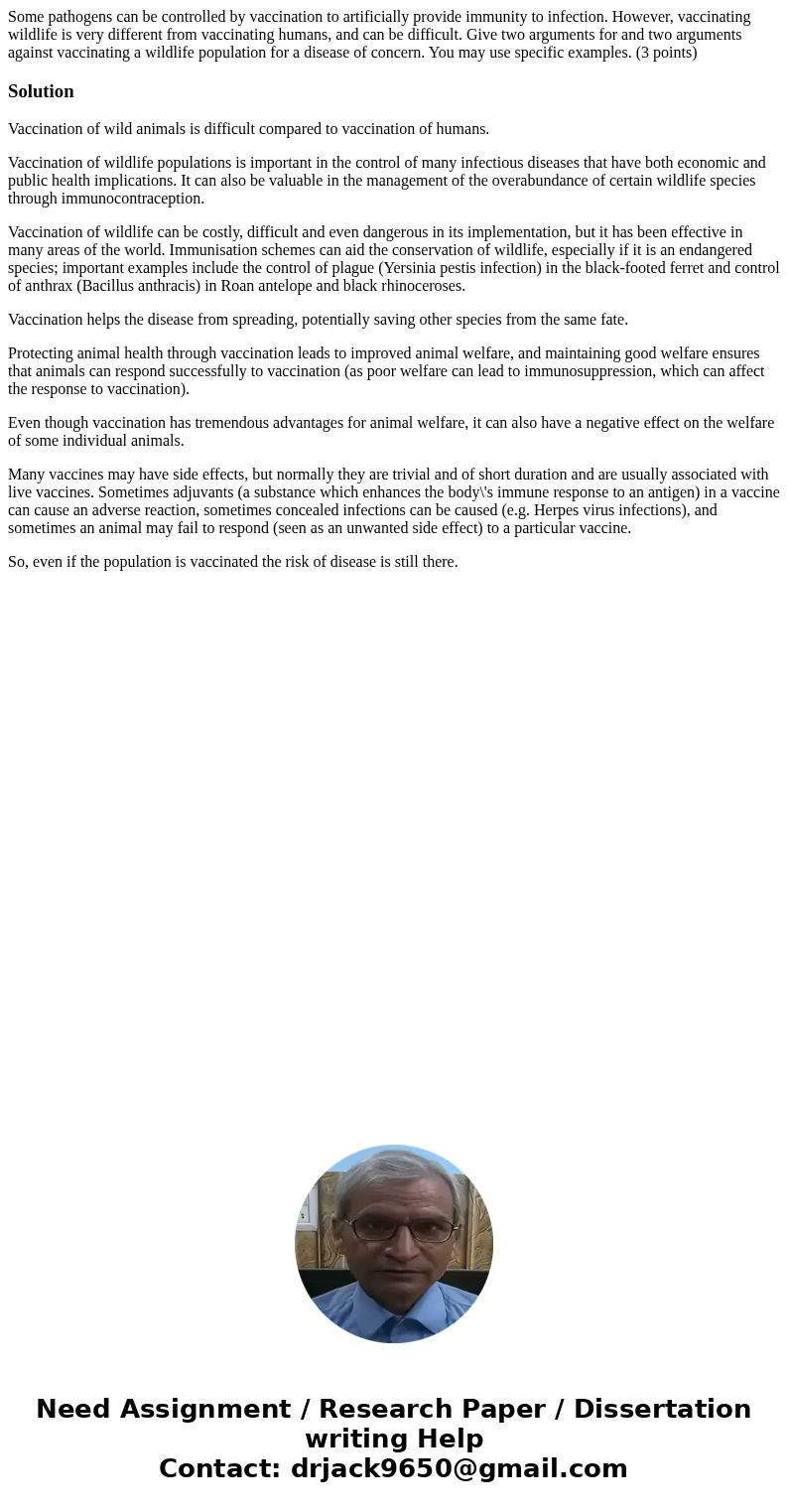Some pathogens can be controlled by vaccination to artificia
Some pathogens can be controlled by vaccination to artificially provide immunity to infection. However, vaccinating wildlife is very different from vaccinating humans, and can be difficult. Give two arguments for and two arguments against vaccinating a wildlife population for a disease of concern. You may use specific examples. (3 points)
Solution
Vaccination of wild animals is difficult compared to vaccination of humans.
Vaccination of wildlife populations is important in the control of many infectious diseases that have both economic and public health implications. It can also be valuable in the management of the overabundance of certain wildlife species through immunocontraception.
Vaccination of wildlife can be costly, difficult and even dangerous in its implementation, but it has been effective in many areas of the world. Immunisation schemes can aid the conservation of wildlife, especially if it is an endangered species; important examples include the control of plague (Yersinia pestis infection) in the black-footed ferret and control of anthrax (Bacillus anthracis) in Roan antelope and black rhinoceroses.
Vaccination helps the disease from spreading, potentially saving other species from the same fate.
Protecting animal health through vaccination leads to improved animal welfare, and maintaining good welfare ensures that animals can respond successfully to vaccination (as poor welfare can lead to immunosuppression, which can affect the response to vaccination).
Even though vaccination has tremendous advantages for animal welfare, it can also have a negative effect on the welfare of some individual animals.
Many vaccines may have side effects, but normally they are trivial and of short duration and are usually associated with live vaccines. Sometimes adjuvants (a substance which enhances the body\'s immune response to an antigen) in a vaccine can cause an adverse reaction, sometimes concealed infections can be caused (e.g. Herpes virus infections), and sometimes an animal may fail to respond (seen as an unwanted side effect) to a particular vaccine.
So, even if the population is vaccinated the risk of disease is still there.

 Homework Sourse
Homework Sourse